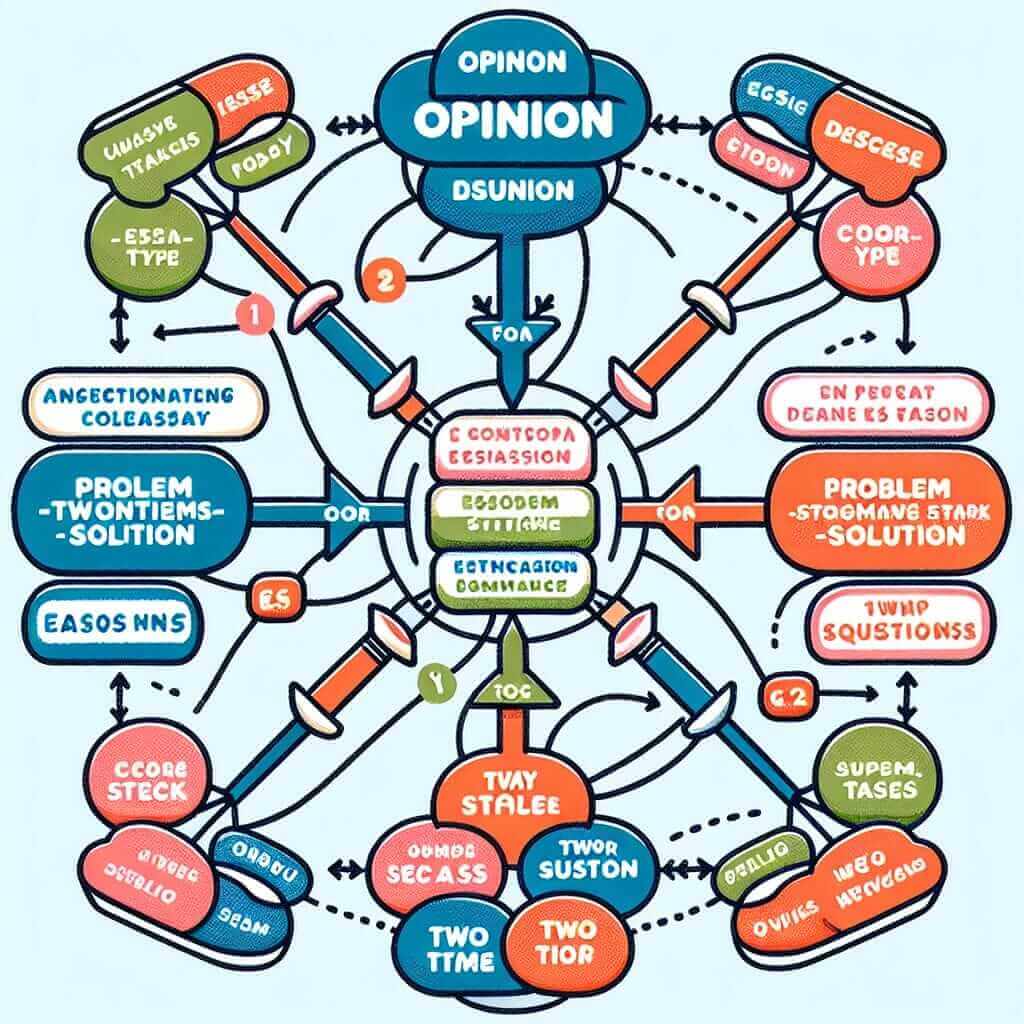As an IELTS instructor with over two decades of experience, I’ve witnessed countless students grapple with the IELTS Writing Task 2. One of the most common questions I encounter is, “How many types of essays are there?” Understanding the various essay types is crucial for crafting a well-structured and coherent response, ultimately boosting your band score.
Unveiling the IELTS Essay Types
While the specific prompts vary, IELTS Writing Task 2 essentially boils down to four main essay types:
1. Opinion Essays: To Agree or Disagree?
Keywords: opinion, agree, disagree, extent, to what extent
This essay type presents a viewpoint and asks you to state your opinion. Do you agree or disagree? Or perhaps you partially agree?
Example: Some people believe that the government should invest heavily in public transportation, while others think that private car use should be encouraged. Discuss both views and give your own opinion.
2. Discussion Essays: Exploring Both Sides
Keywords: discuss both views, advantages, disadvantages, outweigh
In a discussion essay, you’ll be presented with two contrasting viewpoints. Your task is to analyze both sides of the argument before presenting your own balanced perspective.
Example: Some people believe that children should be allowed to use mobile phones in school, while others argue that this should be prohibited. Discuss both sides of this argument and give your own opinion.
3. Problem-Solution Essays: Identifying Issues and Proposing Solutions
Keywords: problem, solution, cause, effect, recommend
This essay type requires you to identify a problem and propose viable solutions. You may also be asked to discuss the causes and effects of the issue at hand.
Example: Traffic congestion is becoming increasingly problematic in major cities. What are the causes of this issue, and what solutions can you suggest?
4. Two-Part Question Essays: Addressing Multiple Prompts
Keywords: two-part question, what extent, what other measures
These essays present two distinct but related questions that you must address comprehensively.
Example: Many young people today are choosing to live in urban areas. To what extent do you think this is a positive trend? What other factors might influence a young person’s choice of where to live?

Mastering the Art of IELTS Essay Writing: Tips for Success
- Deconstruct the Prompt: Carefully analyze the keywords and instructions to determine the specific essay type and what’s being asked of you.
- Plan Your Response: Before you begin writing, brainstorm ideas and create a clear essay outline. This will ensure a logical flow and prevent you from veering off-topic.
- Use Strong Evidence: Support your claims with relevant examples, statistics, or personal anecdotes to strengthen your arguments.
- Show Off Your Lexical Resource: Use a wide range of vocabulary specific to the essay topic. Avoid repetition and aim for precision in your word choice.
- Proofread Carefully: Grammatical errors and spelling mistakes can lower your score. Allow ample time to review and edit your work before submission.
Final Thoughts: Practice Makes Perfect
By understanding the different IELTS Writing Task 2 essay types and practicing your writing skills, you’ll be well on your way to achieving a high band score. Remember, consistency is key! The more you write, the more confident you’ll become in tackling any essay prompt that comes your way.